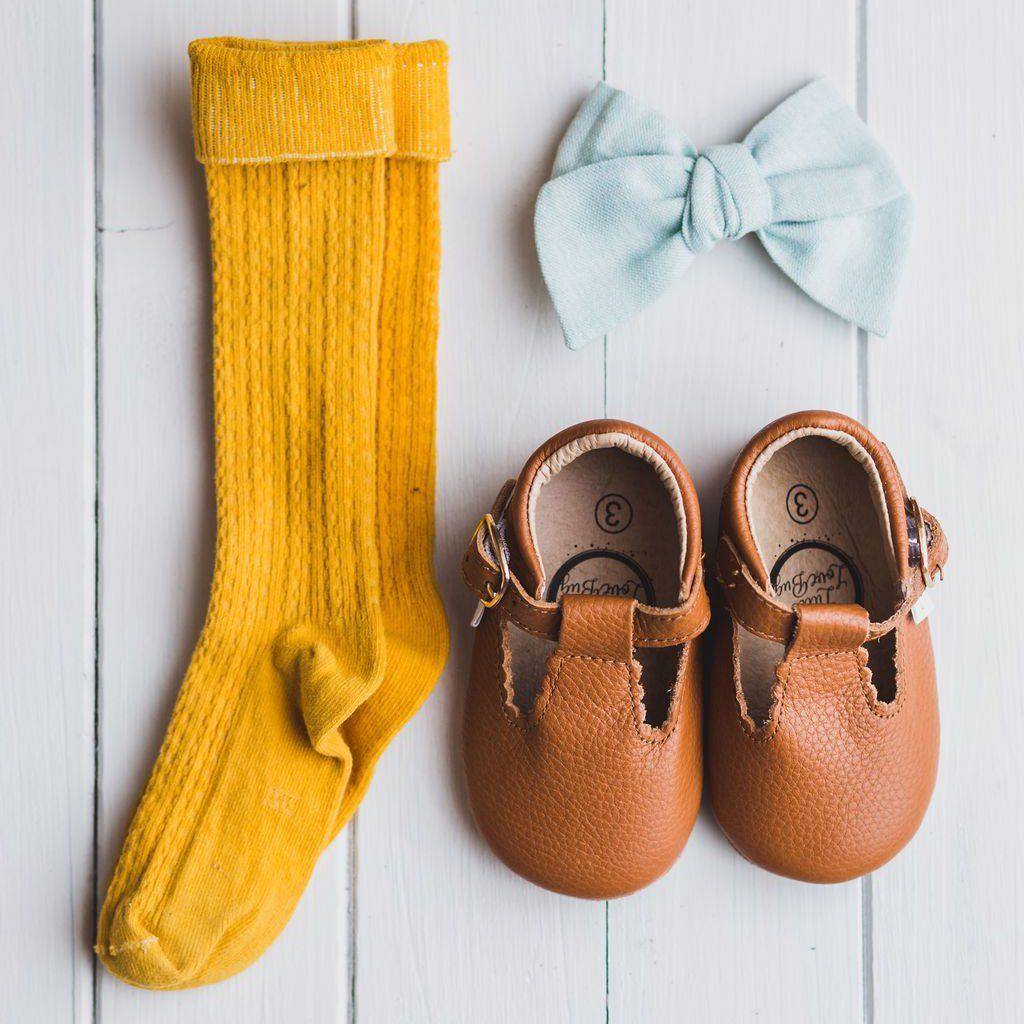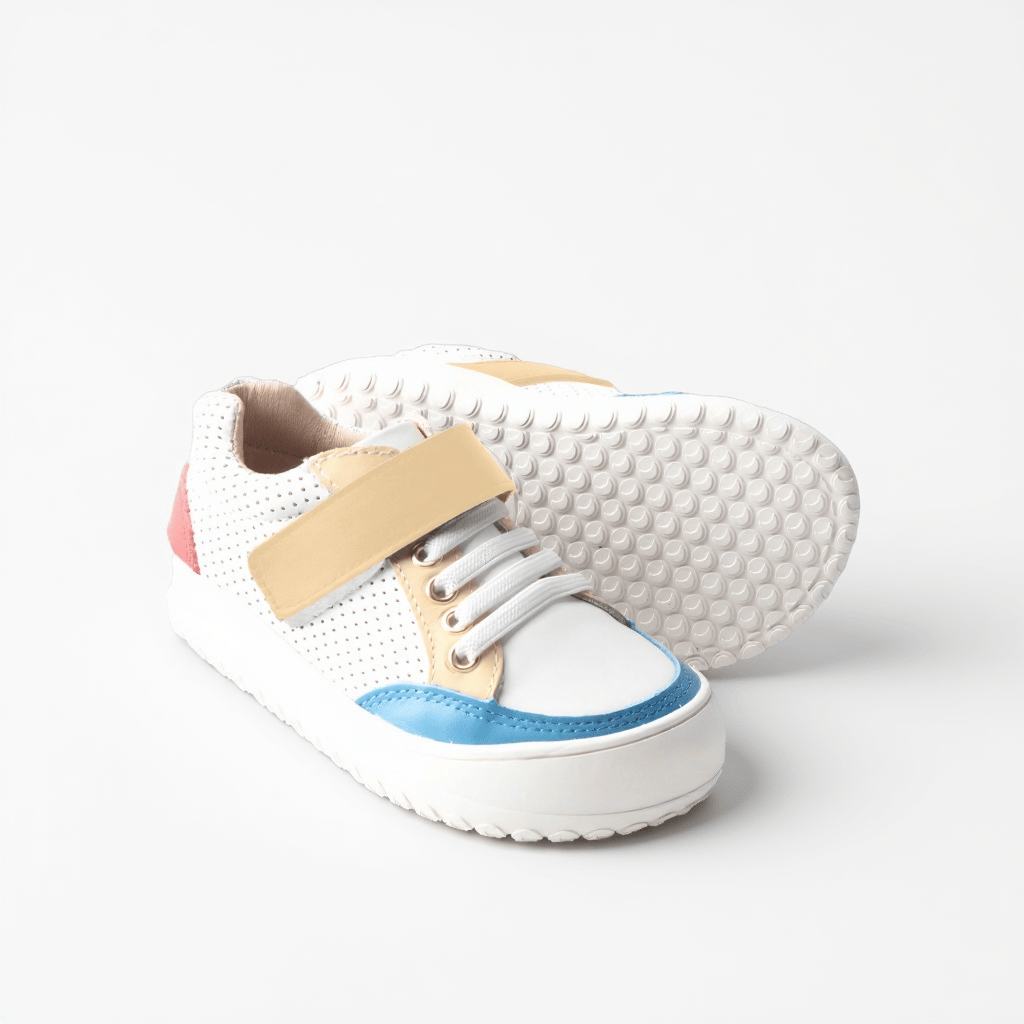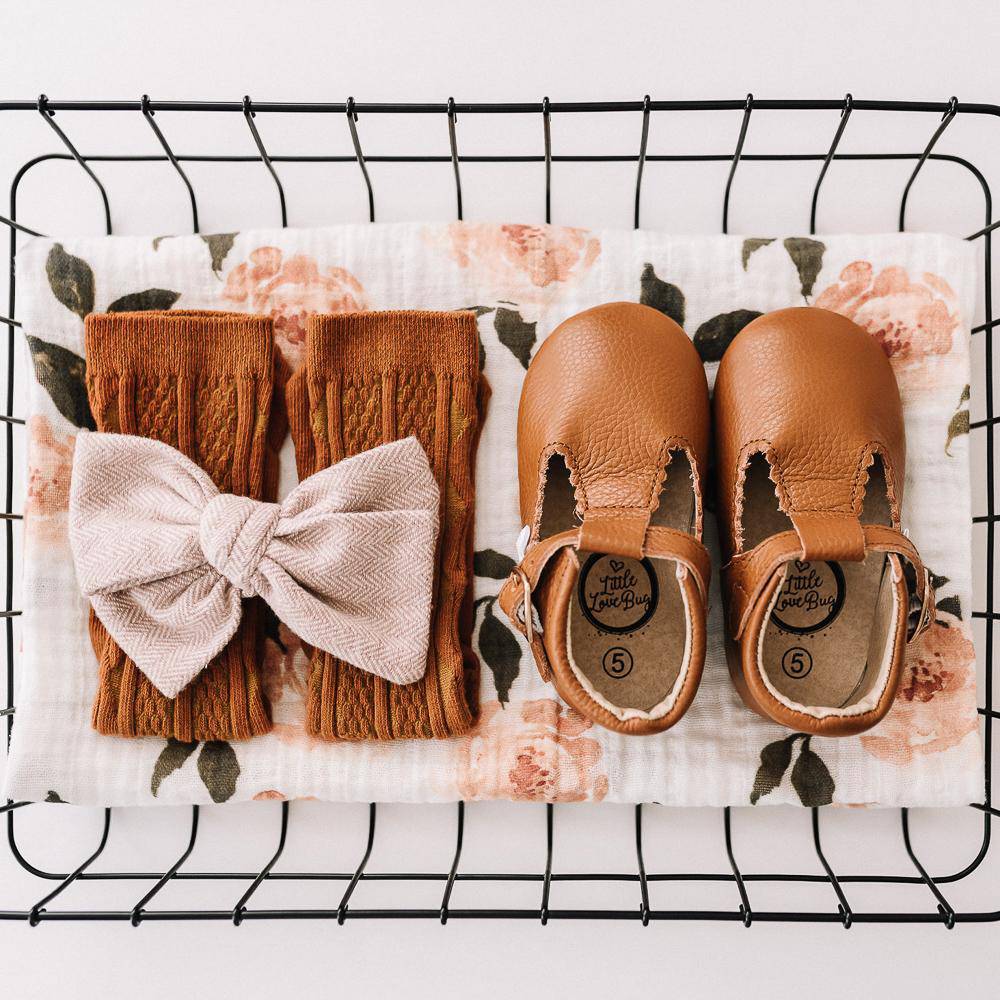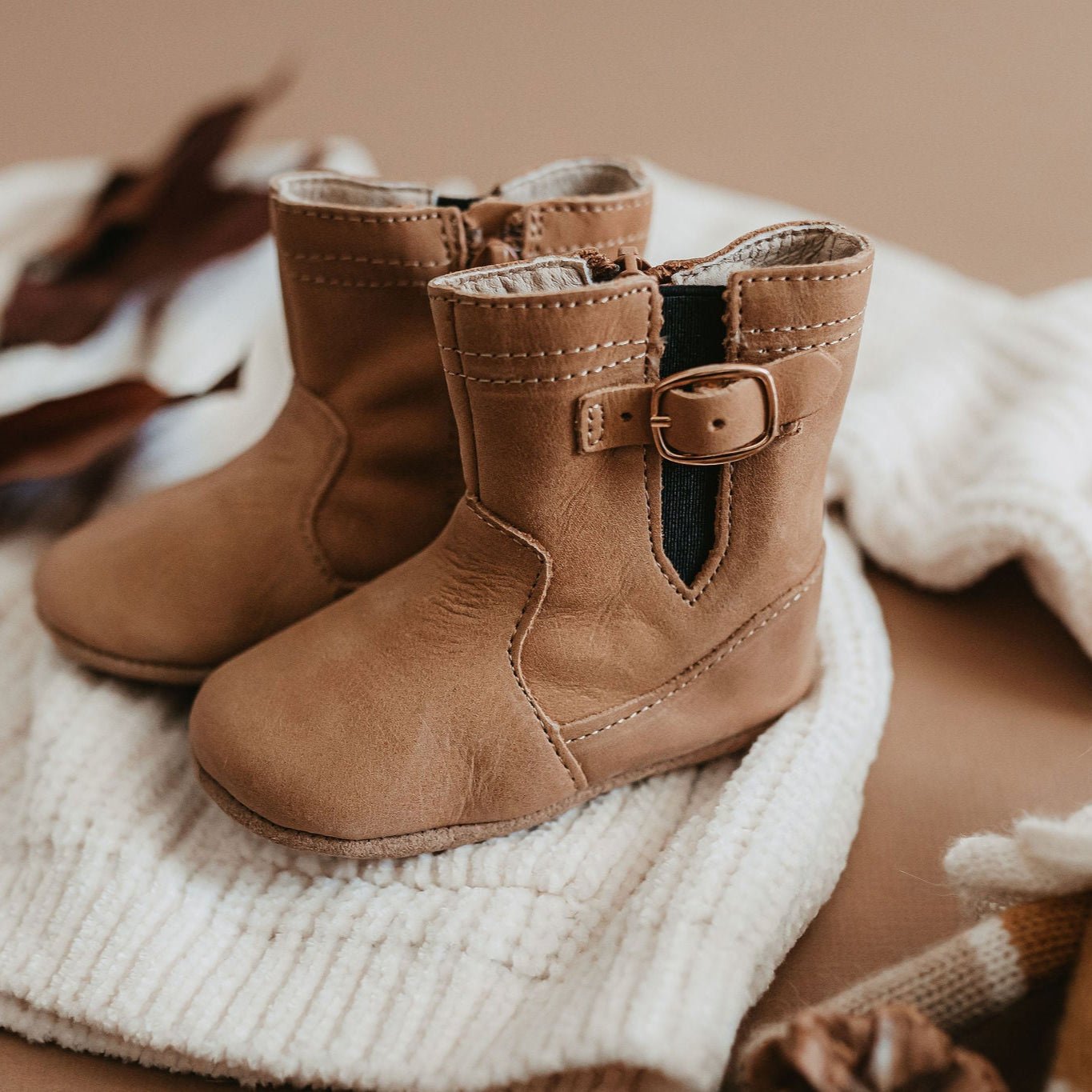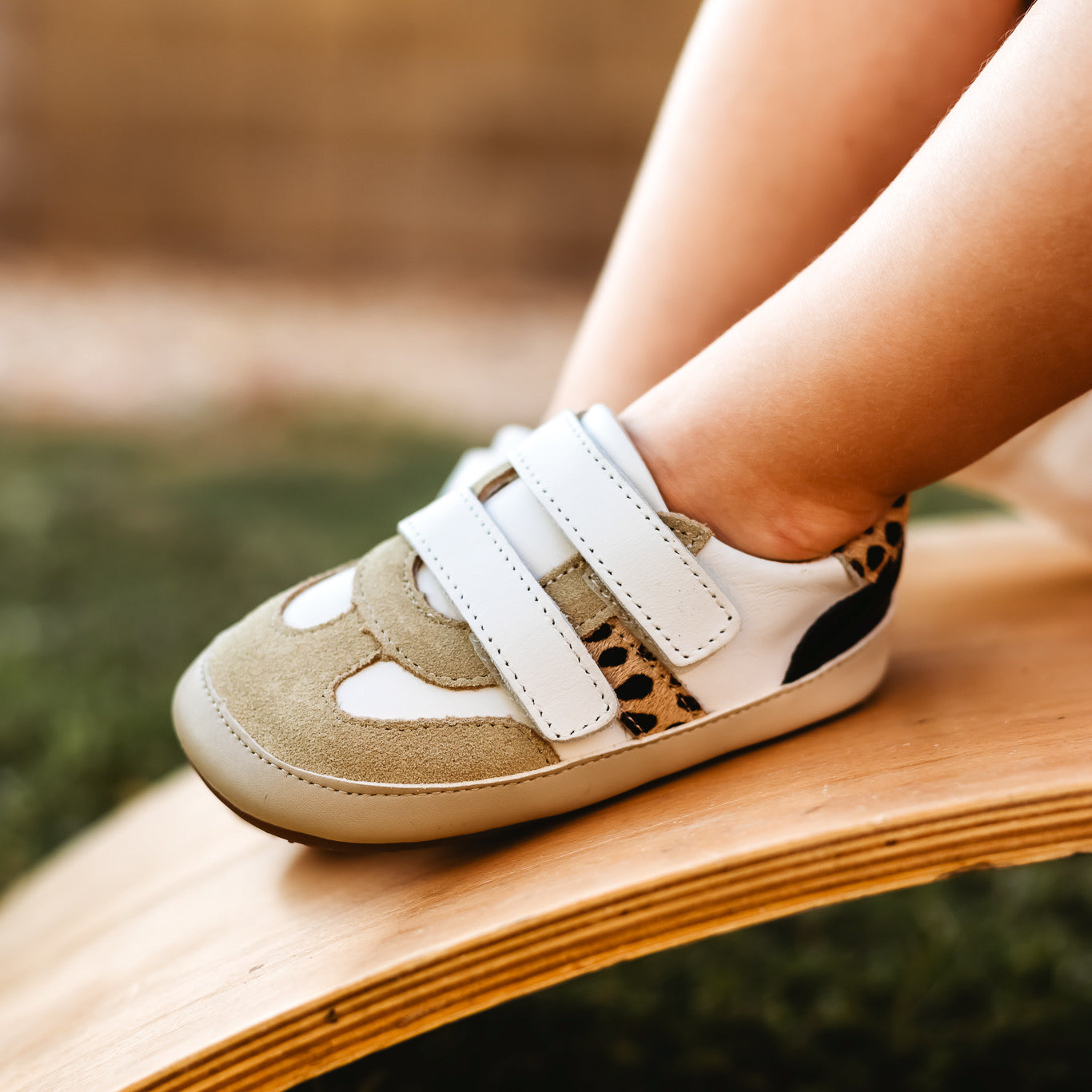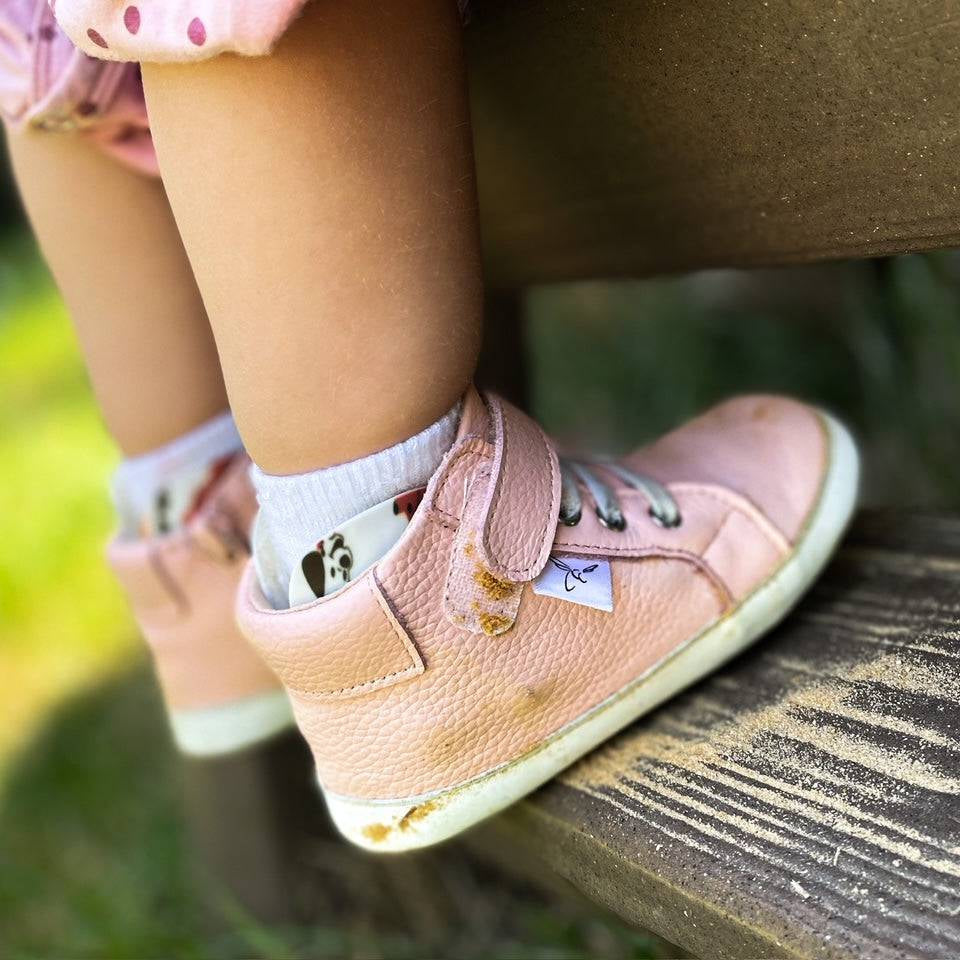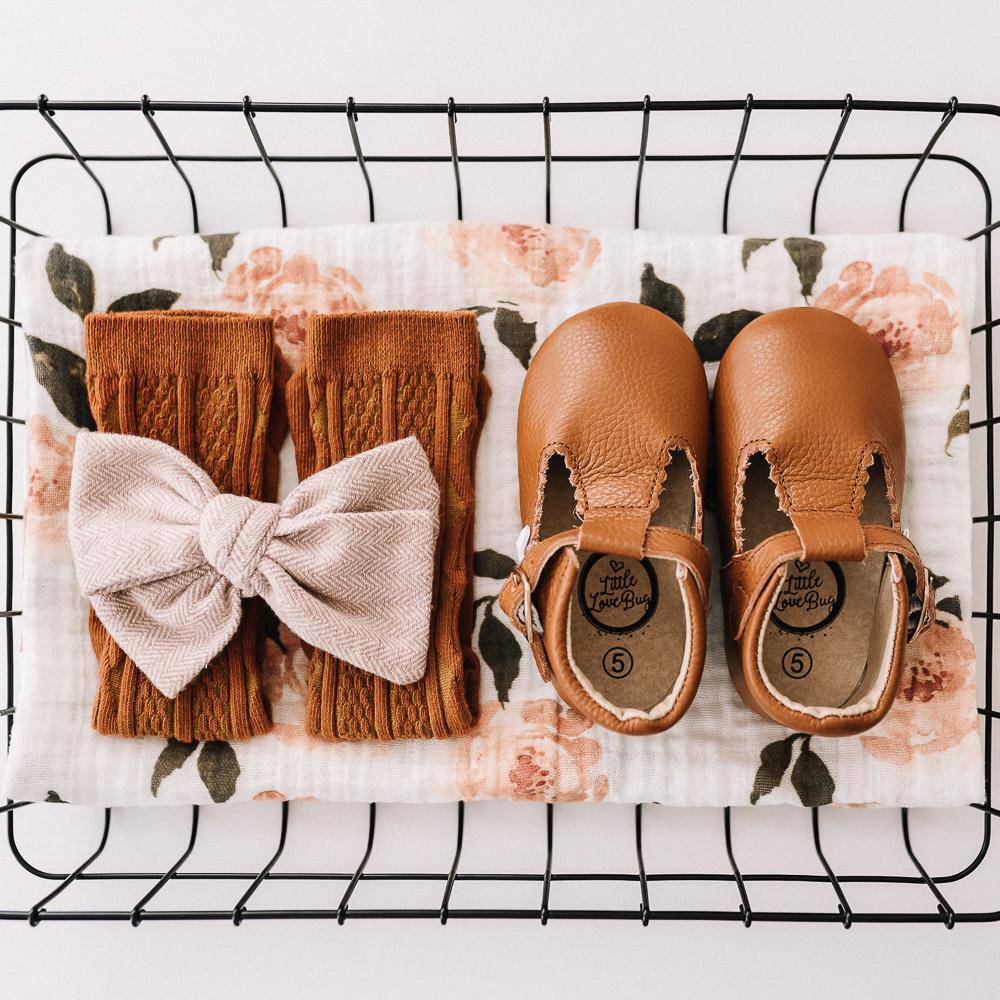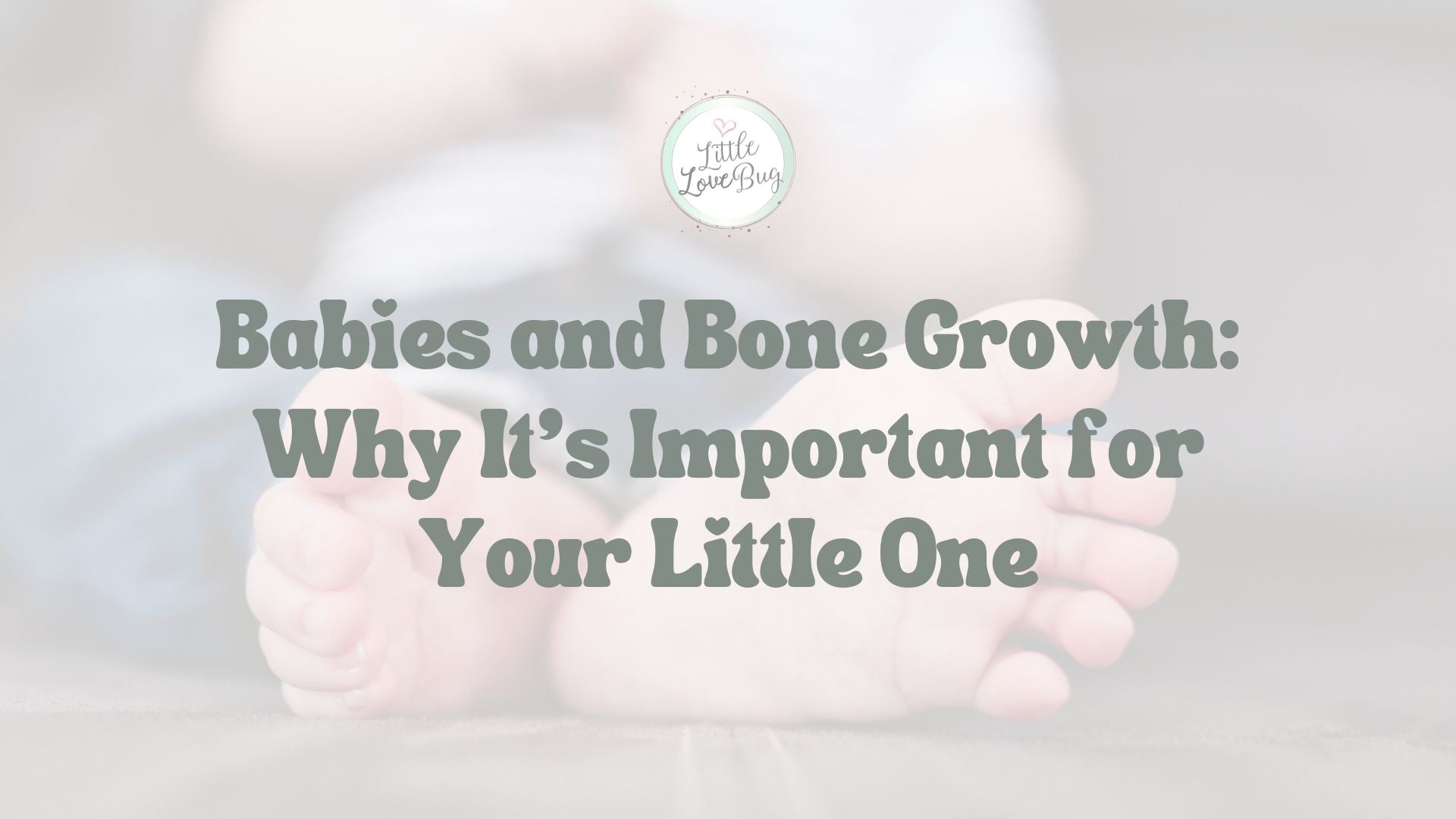
Babies and Bone Growth and Why It's Important for Your Little One
Babies are born with 300 bones in their body, but many of them will fuse together as the baby grows. Bone growth is an essential part of a baby's development and is key to ensuring a healthy childhood and adulthood. As parents, it is important to understand why bone growth is so important for our little ones and how we can help them get the most out of this process. In this blog post, we will explore the importance of bone growth in babies and some tips on how to support your baby's healthy development.
Bones are constantly growing
Babies are born with around 300 bones, and as they grow, those bones fuse together to form 206 bones by adulthood. Bones grow in size and strength throughout childhood and teenage years, but the process of bone growth slows down after puberty.
During the first few years of life, babies experience rapid physical development. The first year is marked by immense changes in size and shape, and bones have a huge role to play in this process. During infancy, bones begin to harden and grow due to an influx of calcium and other minerals in the body. Bone growth continues until the age of 18 when it begins to slow down.
It is important for parents to ensure their baby gets enough nutrition and exercise during this period so that the bones can develop properly. Proper nutrition is necessary to provide the body with the essential minerals needed for healthy bones. Weight-bearing exercises such as walking or running can also help stimulate bone growth and make bones stronger. Without the proper nutrition and exercise, babies may not reach their maximum potential when it comes to bone growth.
Strong bones are essential for lifelong health, providing support and protection for our body’s organs, muscles, and joints. Bones also help store minerals like calcium which can help keep your baby's teeth and bones healthy as they grow. Parents should take all necessary measures to ensure their baby has a healthy diet and exercise routine to help them reach their full bone growth potential.
Proper nutrition is essential for healthy bones
Bones are living tissue and they require nutrients in order to grow. In babies, this is especially important as their bones are growing rapidly. A diet that is rich in calcium, vitamin D, magnesium, and phosphorus is essential for proper bone growth and development.
Calcium is the most important mineral for bone health, and it can be found in foods like dairy products, dark leafy greens, and fortified cereals. Vitamin D is necessary to help the body absorb calcium, and it can be found in fortified milk and other fortified foods, as well as sunlight exposure. Magnesium helps the body use calcium and can be found in nuts, legumes, and whole grains. Phosphorus is also important for bone health, and it can be found in dairy products, meats, eggs, and fish.
In addition to providing essential nutrients for bone growth, a healthy diet also supports the overall health of your baby. Eating a variety of foods from the five food groups is the best way to ensure that your baby is getting all of the essential vitamins and minerals that their growing body needs.
Weight-bearing exercise helps stimulate bone growth
When babies are born, they have more than 300 bones that are soft and malleable. As they grow, these bones become hard and strong through a process called ossification. This happens as the body absorbs calcium and other minerals from the food that is consumed, which helps to strengthen the bones.
Weight-bearing exercises, such as walking, running, and jumping, play an important role in stimulating bone growth. This type of exercise increases the load on bones, forcing them to grow stronger and thicker in order to support the extra weight. Weight-bearing exercises also stimulate the production of certain hormones which help to increase bone mineral density.
Since babies are so small and fragile, it’s important to give them plenty of time to explore and move around in a safe environment. Playgrounds are a great place for babies to practice their balance and coordination skills, while also helping to build strong bones. It’s also important for parents to ensure their babies are getting enough calcium and other minerals through their diet, as these are essential for proper bone development.
Weight-bearing exercise can be a fun way for babies to explore their environment and learn about their bodies, while also helping to strengthen their bones for lifelong health.
Bones provide support and protection for the body
Bones are essential for providing support and protection for the body. They act as a scaffolding that helps hold the body up and give it shape. Bones also protect the organs, allowing them to move freely but remain protected. For example, the rib cage protects the heart and lungs from injury or damage.
In addition to providing structural support, bones also provide protection from infection by forming a barrier around the organs. This prevents germs and viruses from entering the body and causing illness or disease. Bones also store important minerals like calcium, which helps keep bones strong and healthy.
Finally, bones play an important role in movement. By connecting muscles to one another, bones allow us to move our arms, legs, and other parts of the body. Without bones, movement would be impossible.
Babies need healthy bones to ensure that they develop properly and are able to move freely. That’s why it’s important to make sure they get enough nutrition and exercise to help their bones grow strong. Strong bones will help your little one stay healthy and active for years to come!
Strong bones are important for lifelong health
Having strong bones is essential for a lifetime of good health. Weak or brittle bones can lead to fractures, breaks, and other injuries. Bones play an important role in supporting our bodies and protecting our vital organs. They are also a source of strength and stability, allowing us to move and do physical activities.
Having healthy bones helps protect against diseases such as osteoporosis and arthritis. Osteoporosis is a condition in which the bones become weak and brittle due to loss of bone density. It increases the risk of fractures, particularly in the hips, wrists, and spine. Arthritis is a painful condition that affects the joints, caused by inflammation of the joint lining. Having healthy bones can reduce the risk of developing these diseases.
Strong bones are also important for overall physical fitness. Weight-bearing exercise helps strengthen the bones, which in turn helps improve coordination and balance. Exercise also helps improve muscle strength and flexibility, further helping to prevent injuries.
Ensuring that your child has strong bones is an important part of ensuring lifelong health. A balanced diet with adequate amounts of calcium and vitamin D is essential for healthy bone growth. Encouraging weight-bearing exercise such as walking, running, and playing sports helps promote bone development. Regular check-ups with a doctor can also help detect any bone health issues early on. With the right care and attention, you can help ensure your little one has strong bones for life!
Bones are constantly growing
Babies are born with around 300 bones, and as they grow, those bones fuse together to form 206 bones by adulthood. Bones grow in size and strength throughout childhood and teenage years, but the process of bone growth slows down after puberty.
During the first few years of life, babies experience rapid physical development. The first year is marked by immense changes in size and shape, and bones have a huge role to play in this process. During infancy, bones begin to harden and grow due to an influx of calcium and other minerals in the body. Bone growth continues until the age of 18 when it begins to slow down.
It is important for parents to ensure their baby gets enough nutrition and exercise during this period so that the bones can develop properly. Proper nutrition is necessary to provide the body with the essential minerals needed for healthy bones. Weight-bearing exercises such as walking or running can also help stimulate bone growth and make bones stronger. Without the proper nutrition and exercise, babies may not reach their maximum potential when it comes to bone growth.
Strong bones are essential for lifelong health, providing support and protection for our body’s organs, muscles, and joints. Bones also help store minerals like calcium which can help keep your baby's teeth and bones healthy as they grow. Parents should take all necessary measures to ensure their baby has a healthy diet and exercise routine to help them reach their full bone growth potential.
Proper nutrition is essential for healthy bones
Bones are living tissue and they require nutrients in order to grow. In babies, this is especially important as their bones are growing rapidly. A diet that is rich in calcium, vitamin D, magnesium, and phosphorus is essential for proper bone growth and development.
Calcium is the most important mineral for bone health, and it can be found in foods like dairy products, dark leafy greens, and fortified cereals. Vitamin D is necessary to help the body absorb calcium, and it can be found in fortified milk and other fortified foods, as well as sunlight exposure. Magnesium helps the body use calcium and can be found in nuts, legumes, and whole grains. Phosphorus is also important for bone health, and it can be found in dairy products, meats, eggs, and fish.
In addition to providing essential nutrients for bone growth, a healthy diet also supports the overall health of your baby. Eating a variety of foods from the five food groups is the best way to ensure that your baby is getting all of the essential vitamins and minerals that their growing body needs.
Weight-bearing exercise helps stimulate bone growth
When babies are born, they have more than 300 bones that are soft and malleable. As they grow, these bones become hard and strong through a process called ossification. This happens as the body absorbs calcium and other minerals from the food that is consumed, which helps to strengthen the bones.
Weight-bearing exercises, such as walking, running, and jumping, play an important role in stimulating bone growth. This type of exercise increases the load on bones, forcing them to grow stronger and thicker in order to support the extra weight. Weight-bearing exercises also stimulate the production of certain hormones which help to increase bone mineral density.
Since babies are so small and fragile, it’s important to give them plenty of time to explore and move around in a safe environment. Playgrounds are a great place for babies to practice their balance and coordination skills, while also helping to build strong bones. It’s also important for parents to ensure their babies are getting enough calcium and other minerals through their diet, as these are essential for proper bone development.
Weight-bearing exercise can be a fun way for babies to explore their environment and learn about their bodies, while also helping to strengthen their bones for lifelong health.
Bones provide support and protection for the body
Bones are essential for providing support and protection for the body. They act as a scaffolding that helps hold the body up and give it shape. Bones also protect the organs, allowing them to move freely but remain protected. For example, the rib cage protects the heart and lungs from injury or damage.
In addition to providing structural support, bones also provide protection from infection by forming a barrier around the organs. This prevents germs and viruses from entering the body and causing illness or disease. Bones also store important minerals like calcium, which helps keep bones strong and healthy.
Finally, bones play an important role in movement. By connecting muscles to one another, bones allow us to move our arms, legs, and other parts of the body. Without bones, movement would be impossible.
Babies need healthy bones to ensure that they develop properly and are able to move freely. That’s why it’s important to make sure they get enough nutrition and exercise to help their bones grow strong. Strong bones will help your little one stay healthy and active for years to come!
Strong bones are important for lifelong health
Having strong bones is essential for a lifetime of good health. Weak or brittle bones can lead to fractures, breaks, and other injuries. Bones play an important role in supporting our bodies and protecting our vital organs. They are also a source of strength and stability, allowing us to move and do physical activities.
Having healthy bones helps protect against diseases such as osteoporosis and arthritis. Osteoporosis is a condition in which the bones become weak and brittle due to loss of bone density. It increases the risk of fractures, particularly in the hips, wrists, and spine. Arthritis is a painful condition that affects the joints, caused by inflammation of the joint lining. Having healthy bones can reduce the risk of developing these diseases.
Strong bones are also important for overall physical fitness. Weight-bearing exercise helps strengthen the bones, which in turn helps improve coordination and balance. Exercise also helps improve muscle strength and flexibility, further helping to prevent injuries.
Ensuring that your child has strong bones is an important part of ensuring lifelong health. A balanced diet with adequate amounts of calcium and vitamin D is essential for healthy bone growth. Encouraging weight-bearing exercise such as walking, running, and playing sports helps promote bone development. Regular check-ups with a doctor can also help detect any bone health issues early on. With the right care and attention, you can help ensure your little one has strong bones for life!





